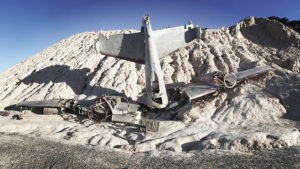China’s industry is ramping up again, economists expect the nation to be back to reasonable growth in 2021

Getty Images
While the rest of the world is now retreating economically thanks to the coronavirus, the country where the virus originated is gradually getting back on its feet.
Earlier this week we heard that Wuhan had reported no new coronavirus cases for the first time.
And China’s economy is starting to gear up again.
Climate change activists won’t like this, but the European Space Agency reported overnight that nitrogen dioxide emissions coming from China were starting to increase – an indicator that factories are ramping up again.
A new animation showing the variation of nitrogen dioxide emissions over #China (Dec-March) – thanks to @CopernicusEU #Sentinel5P data.
Sentinel-5P currently provides the most accurate measurements of NO2 and other trace gases from space.
ℹ️https://t.co/Gn9mvSnIu6 pic.twitter.com/nDLrboKnXG— ESA Earth Observation (@ESA_EO) March 19, 2020
Factories that are re-opening include Foxconn, which supplies Apple, as well as engineering firm Danfoss.
This trend is being seen in either the operations or share price movements of ASX companies.
Food Revolution Group (ASX:FOD) on Friday reiterated financial guidance at the same time many other stocks withdrew theirs.
Chairman Norman Li said he expected sales to ramp up with improved conditions in China. While the stock is down overall this week, it climbed over 20 per cent today.
Also, iron ore exporter Fortescue Metals (ASX:FMG) — the ASX company that, according to Bloomberg, has the most exposure to China with more than 90 per cent of its revenues flowing from the Asian powerhouse, has rallied over 25 per cent in the past week.
China may still feel the world’s pain
However, economists are warning the scars inflicted by the virus will last for some time.
Firms such as Bloomberg, JP Morgan and Natixis have put China’s growth forecasts for 2020 at 2 per cent or below.
JP Morgan said earlier this week stimulus would still be needed.
“The macro policy objective going forward is likely to ensure smooth production resumption in March, with a 2Q growth rebound, to be followed by normalisation in the underlying growth trend later in the year,” JP Morgan economist Marcio Farid said.
Natixis said it would be impossible for China to grow above 3 per cent in 2020, but thinks growth could return to normal in 2021.
While China may ridding itself of COVID-19, Natixis thinks the rest of the world reducing its demand for Chinese goods and services could be just as big of a hit as its bout with the virus.
“China cannot fully isolate itself from the rest of the world, especially after taking the hit from such a massive shock in the first two months of the year,” the investment bank said.
“The growth prospect of 2020 largely depends on the government’s policy responses, including not only the size of China’s stimulus but also the policy responses from the rest of the world to the pandemic.
“The government will have to introduce more stimulus measures to support economic growth but will still fall short of reaching the target it had set.
“With a sharp negative growth rate in Q1, and the very negative impact of the pandemic on the global economy, it will be nearly impossible for China to grow above 3 per cent in 2020.
“In any event, if the shock for the global economy were temporary, China should be able to grow above 5 per cent in 2021 thanks to a very large base effect from a terrible 2020.”
Related Topics
UNLOCK INSIGHTS
Discover the untold stories of emerging ASX stocks.
Daily news and expert analysis, it's free to subscribe.
By proceeding, you confirm you understand that we handle personal information in accordance with our Privacy Policy.








